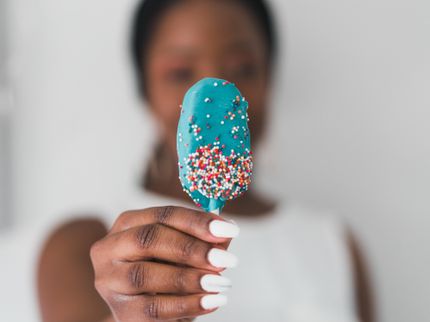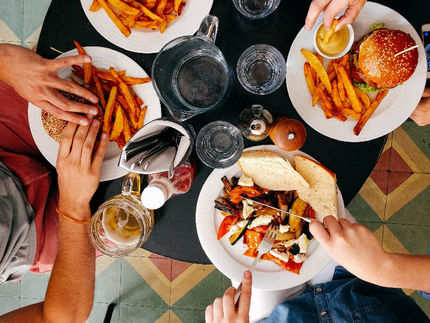The influence of social media on children’s food intake
New University of Liverpool research, published in Pediatrics, highlights the negative influence that social media has on children’s food intake.

Antranias/ Pixabay
Current research shows celebrity endorsement and television advertising of unhealthy foods increases children’s intake of these foods. However, children are increasingly exposed to marketing through digital avenues, such as on social media, and the impact of marketing by YouTube video bloggers (vloggers) on these outcomes has, until now, not been known.
According to a recent report by Ofcom children in the UK now access social media more than ever before. Approximately 93% of 8-11-year-olds go online, 77% use YouTube and 18% have a social media account. In older children (12-15-year-olds), 99% go online, 89% use YouTube and 69% have a social media account. Both age groups watch YouTube vloggers.
Vloggers’ influence
PhD student Anna Coates, from the University’s Appetite and Obesity research group, conducted a study to examine the effect of social media marketing of snack foods (healthy and unhealthy), via vloggers’ Instagram pages, on children’s snack intake.
During the study 176 children, aged between 9 and 11 years, were randomly split into three equal groups and were shown artificially created, but realistic, Instagram pages of popular vloggers (each has millions of followers). One group was shown images of the vlogger with unhealthy snacks, the second group was shown images of the vlogger with healthy snacks and the third group was shown images of the vlogger with non-food products. The participants’ subsequent intake of snacks (healthy and unhealthy options) were measured.
Children in the group that viewed the unhealthy snack images consumed 32% more kcals from unhealthy snacks specifically and 26% more kcals in total (from healthy and unhealthy snacks) compared with children who saw the non-food images. There was no significant difference in total kcal intake, or healthy snack kcal intake, between children who saw the Instagram profile with healthy images and those who saw the non-food images.
Impactful and exploitative
Of the study Anna Coates, said: “These findings suggest that the marketing of unhealthy foods, via vloggers’ Instagram pages, increases children’s immediate energy intake. The results are supported by celebrity endorsement data, which show unhealthy food endorsements increase children’s unhealthy food intake, but healthy food endorsements have little or no effect on healthy food intake.
“Young people trust vloggers more than celebrities so their endorsements may be even more impactful and exploitative. Tighter restrictions are needed around the digital marketing of unhealthy foods that children are exposed to, and vloggers should not be permitted to promote unhealthy foods to vulnerable young people on social media.”
Most read news
Organizations
Other news from the department science

Get the food & beverage industry in your inbox
By submitting this form you agree that LUMITOS AG will send you the newsletter(s) selected above by email. Your data will not be passed on to third parties. Your data will be stored and processed in accordance with our data protection regulations. LUMITOS may contact you by email for the purpose of advertising or market and opinion surveys. You can revoke your consent at any time without giving reasons to LUMITOS AG, Ernst-Augustin-Str. 2, 12489 Berlin, Germany or by e-mail at revoke@lumitos.com with effect for the future. In addition, each email contains a link to unsubscribe from the corresponding newsletter.

























































